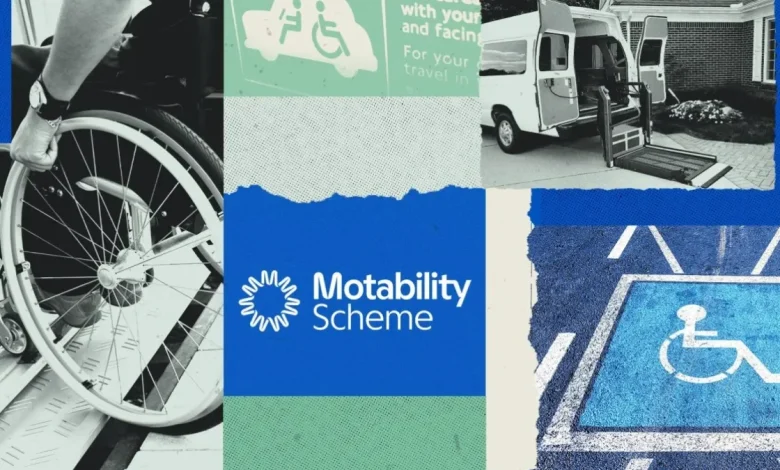I ran Motability for the DWP – here’s how it should be changed

The former head of Government policy for the car scheme urges Rachel Reeves to push on with radical reforms
The scheme which provides cars to disabled people is unfair to taxpayers and needs a major shake-up, says an ex-Government official.
Matt Ryder, the former head of Motability scheme policy at the Department for Work and Pensions (DWP), told The i Paper that Rachel Reeves must make radical changes to the “broken” system.
Some of the options for the Chancellor are to end tax breaks, replace new vehicles with second-hand cars, and break up the “monopoly” enjoyed by the company that runs the scheme.
New Feature
In Short
Quick Stories. Same trusted journalism.
Motability Operations – the company which runs the scheme – has warned that a tax crackdown would increase up-front payment costs to disabled drivers.
However, Ryder, who was in charge of Motability policy at the DWP between 2015 and 2017, said the company was big enough to “absorb” the tax without passing it on to disabled drivers.
He also suggested the Government looks at how to reduce how many personal independent payments (PIP) claimants can access the scheme – claiming numbers had spun “out of control”.
Only those who get the enhanced PIP mobility payment qualify for Motability. Around 860,000 PIP claimants use the scheme, the latest annual figures show.
Matt Ryder worked on Motability policy for the DWP (Photo: Max Grizaard)
Ryder – who has written a report on Motability for the right-leaning Adam Smith Institute – outlined several ways Labour could fix the car scheme.
It comes as Reeves considers imposing VAT on the scheme for the first time at the Budget later this month, in a bid to raise around £1bn a year.
The Chancellor is also thought to be keen on changes so disabled benefits claimants can no longer access luxury models such as BMWs, Mercedes and Audis.
Overall, the Office for Budget Responsibility’s projections for benefits spending, predicts PIP costs will increase from £18bn last year to £34bn by 2030.
End tax relief
The Motability scheme is partly funded by the taxpayer. Disabled drivers hand over most or all of their £300 PIP mobility money each month in order to lease a new car, typically for three years.
There is usually an up-front payment required too, ranging from a few hundred pounds for the very cheapest new models to £8,000 for the most expensive luxury brands.
One option to amend the system is for the Government to end both the VAT and Insurance Premium tax reliefs enjoyed by Motability Operations for the leasing scheme.
Chancellor Rachel Reeves is considering tax change for Motability (Photo: Chris J. Ratcliffe / Reuters)
The former policy chief, who left Government at the end of 2022 and now works in finance, estimates tax changes could raise £1.2bn per year for the Treasury.
“Motability could absorb that cost in a range of ways without pushing disabled people out,” Ryder said, before adding that “maybe they have to accept less profit”.
However, a Motability spokesperson said Ryder’s views were based on “a misunderstanding of how car leasing works” – arguing they would lead to higher costs for drivers.
The company says advance payments would have to increase somewhere between £3,000 and £6,500, on average, if VAT was imposed.
Reeves is thought to be considering ending or at least reducing the VAT exemption at the Budget later this month.
Offer second-hand cars
Motability Operations could be made to offer second-hand cars, amid growing frustration that people on benefits are getting luxury models far beyond many working families.
“It’s reasonable to think you could offer second-hand cars instead,” Ryder said. “The average age of cars on UK roads is 10 years. So there’s a sense of fairness [to consider].”
“My issue is that we’re providing tax relief for an operation that purchases new, luxury brands,” the former DWP policy expert added.
Queen Elizabeth II with the Invacar once used by disabled people. (Photo: Richard Pohle/WPA Pool /Getty Images)
Reform UK has suggested bringing back the three-wheeled, single-seated Invacar for disabled people, ditched in the early 1980s over safety concerns.
Transport Secretary Heidi Alexander said earlier this week that she wanted to see taxpayers’ benefit money used appropriately.
“If that means that models such as really high-end cars – Mercedes, BMW – aren’t available on that scheme, then that’s something I would be comfortable with,” she said.
It is something the Government is clearly thinking about – though it is not clear exactly how they could force the company to reduce its range.
Offering a wide range of models also helps Motability Operations get better deals from car manufacturers, because of the fierce competition to sell vehicles to the huge scheme while also giving drivers a choice of different vehicles.
A spokesperson for Motability said that “if it [leasing second-hand cars] was effective and save money, we would have done it – but we have found it would not provide better value”.
They said some customers require “larger or specially adapted cars, which are often more expensive”.
Break up the monopoly
One way the Government could get more control over the scheme would be to break up the monopoly enjoyed by Motability Operations.
Opening the scheme up to competition from other car leasing companies would let the Government demand more in exchange for welfare money. More than £3bn worth of PIP money was transferred to the scheme last year.
“I think breaking that monopoly would create more transparency and greater accountability,” said Ryder. “It would give disabled people more choice.”
While at the DWP, Ryder said he was frustrated in trying to get information from Motability Operations about how exactly they were using PIP money.
“They were perfectly nice people – I didn’t feel they were deliberately obstructive,” he said. “But at an institutional level, there was just no mechanism to get data from them, to have any oversight over how they were spending benefit money.
“There was awareness at the DWP of how strange the monopoly was,” he added, arguing there is “no equivalent when it came to public procurement”.
However, Motability Operations believes opening the scheme up to competition could jeopardise the idea of it being available to everyone equally.
Some disabled car users need more help than others when it comes to expensive adaptations to cars – with some making use of various grants offered by Motability. Rival competitors may only want to deal with those with the lowest needs.
Restrict PIP eligibility
Another option would be for the Government to restrict access by changing the way mobility is defined – particularly around mental health claims.
“I don’t think the [Motability] scheme is necessarily out of control – I think the underlying PIP benefit has gone out of control,” said Ryder.
“When it comes to mental health, the rise in claims is a problem across PIP and the benefit system. It’s definitely worth looking at as part of the PIP review.”
Disability minister Sir Stephen Timms has suggested eligibility changes to PIP’s mobility component could be made, but not until after the review that he is leading.
“I wouldn’t want to see disabled people denied the chance to get around and have independence,” Ryder added.
“I just think we can do better. I don’t think it’s a good, efficient use of taxpayers money at the moment.”
A Motability spokesperson said eligibility for the scheme is determined by Government. A DWP spokesperson said Motability is responsible for determining what types of vehicles they use.





